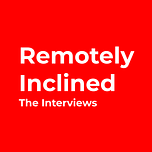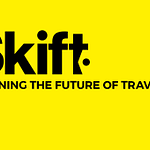Hi,
Welcome to Remotely Inclined, a newsletter about remote work and remote entrepreneurship. If you’d like to sign up, you can do so here. Or just read on…
Melanie Parish has been working remotely for 20 years, coaching Fortune 500 leaders and startup savants alike on how to grow themselves and their businesses. Her entire career has focused on helping people run more effective experiments, and now she’s written a book about it called The Experimental Leader. As part of her experiment-focused career, she used to think that everyone should work from home, believing in her core that it was better for everyone. That’s no longer her core belief.
In this edition of Remotely Inclined Chats, I got Melanie’s advice for all different kinds of people struggling with the COVID-19 lockdown and pressed a bit more on why she thinks offices are absolutely necessary when this pandemic is all over.
Here are the highlights:
Experimenting through COVID-19
If you’ve lost your job due to COVID-19, Melanie recommends gaining new skills adjacent to your current work if you’re not able to find work that’s relevant for you.
If you’re working and are now remote, be as helpful as you’re able to - support local businesses, volunteer, donate, etc.
If you’re an entrepreneur with a demand surge, do everything you can to be people-focused. Company brands are made in times of crisis.
The necessity of an office
Some people are well-suited to remote work, and they should be allowed to continue that - we shouldn’t ignore remote work entirely.
Melanie no longer believes the refrain that everyone should be remote and COVID will make offices redundant in the future, though. Too much still needs to be done face-to-face.
As remote work becomes more prominent in the working world, Melanie feels that the experiment is far from conclusive - offices are still absolutely necessary in our working world.
The final word
“Remote work during COVID-19 is an incomplete experiment. We need more data - and in the meantime we will continue to need offices.”
Remotely Inclined Chats with Melanie Parish
Transcript edited for brevity and clarity.
Stefan: Welcome, Melanie! Can you kick off by sharing a bit about yourself and your work?
Melanie: Thrilled to be here. I’ve been an executive and business coach for the last 20 years, and I recently wrote a book on the thinking I’ve shared with my clients - the tried-and-true methods on how to experiment - called The Experimental Leader. I’m also launching a podcast and academy. So I’m running in all sorts of directions, but it’s all around experimenting and being a thought leader in how we innovate.
So were you a fan of remote work before COVID? Did you plan for remote work with clients?
I’ve been working remotely for my entire career. I’ve coached from home, worked from home, and work with my clients remotely. I used to do it by phone… now I do zoom calls.
What can people do to mentally prepare if they weren’t expecting to work remotely, potentially ever?
I think there’s two categories (as it pertains to COVID). The first is that they are working - and there are maybe two types of workers working at home.
There are those who are working, but their work has almost gone away. So for example, my husband is a research scientist. He does research on babies with autism and no longer has access to his subjects - they’ve locked down the university and he can’t get his dataset. So he’s being paid to work to support a student, but his actual work has a barrier. It’s not a bottleneck - it’s a barrier. It’s important to realize the difference between bottlenecks where you have to work really hard to get through and barriers where you have to stop and figure out a new plan.
The other type of people is anyone where demand for their product has increased dramatically during COVID-19. I work with an organic farm. The first week of COVID they doubled in size. The next week they took on more. Now they have a waitlist because they just can’t grow anymore right now.
And then there’s the category of people whose work has gone away and they don’t have work at all. Now they’re trying to figure out what to do in this time.
How would being an experimental leader apply to these scenarios?
The biggest thing about being an experimental leader is that it’s a new mindset. Being experimental means you’re trying something new. So you try it, but then you need to collect data. It’s a mindset of being curious about what happens, rather than going all in for something. We’re trying it out and pondering what the effect was of what we tried. That’s the heart of being experimental.
For folks who lost their jobs:
If you’ve lost your job and are looking - I have a daughter in this situation - the thing I would suggest is to experiment with up-skilling in some way. There may be a job in their field, and if so they should be looking. But if they aren’t finding any traction, experiment with skilling up. My daughter is a chef and no restaurants are hiring, so she’s doing some courses on being a project manager. She’s taking the opportunity to see if she can emerge from this with more skills than she went into it with.
It’s a good practice, and also gives purpose and meaning. For people who don’t have meaningful work, they need to figure out how they fill their time so they don’t just turn and spin.
For the employee who is able to work remotely and has a job:
For those people, it’s about making sure they are orienting to a message of helpfulness. For example, I have more disposable income than I ever have because I am not spending it anywhere else, but I want something that’s useful to me - I don’t need tchotchkes.
For the business leader with more demand for their product or service:
Another important thing is that people are really busy and doing more emotional labor than they ever have. Their team is looking for answers. They’re looking for guarantees like if they have employment. The people around them are afraid, and customers are needy.
So experiments should be around how you put down the emotional labor. I’ve been suggesting to my clients that they delegate some emotional labor to someone else so they can take a couple of days where they’re not checking in on all of their employees - they have someone else on the team who picks up the emotional labor piece in the short-term.
Can you share an example of a business doing the right thing in this crisis?
I have a client with a line of products that are good for overall health and immune systems - for example, she has a line of probiotics.
Many people are jacking up the price on these kinds of products. She put all of her products on sale. She didn’t need to, but she went all-in for helping others with their health, which I believe will be a long-term benefit to her. But in the short term, she was all-in for her clients.
How has your experience so far changed your perspective on remote work?
I always thought everybody should work at home. That was my core belief. I just don’t believe that anymore.
The whole world is saying “we’re going to go back, and everybody’s going to work at home, and we won’t need offices anymore.” I think that might be true for some people but I actually am seeing, now more than ever, how offices can also be important. For instance, how important it is to be face-to-face with people.
Some people are really well situated for working at home. And some people aren’t - some people need to be in a room with other people. And I have definitely seen with some of my clients the toll that being alone has on them from a mental health perspective. I’m most worried about people who live along during this time who are remote 24/7.
It’s a bit difficult to actually collect the data on if it’s worth working remotely versus living and working remotely. There may be some data, but it’s muddy about working remotely right now.
Amazing, thank you for your insights!
You can get in touch with Melanie on Twitter.















Share this post